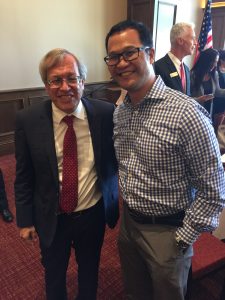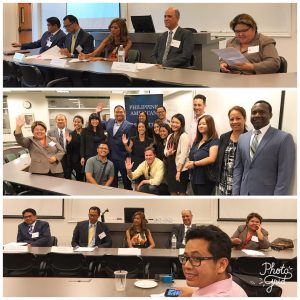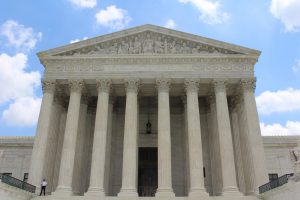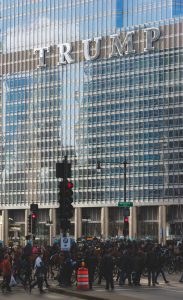The Department of Homeland Security (DHS) designates certain foreign countries for Temporary Protected Status (TPS) in extreme cases of war, natural disasters, and epidemics. A country can be TPS designated for any type of disaster that could potentially prevent its citizens from returning, but the decision to assign TPS is c ompletely at the discretion of the U.S. government. TPS allows certain citizens who are currently in the United States to stay because their countries have been deemed unsafe for return. It does not, however, grant permanent legal residency in the United States. Under TPS, people can temporarily remain, live, and work in the United States until DHS ends the designated period.
ompletely at the discretion of the U.S. government. TPS allows certain citizens who are currently in the United States to stay because their countries have been deemed unsafe for return. It does not, however, grant permanent legal residency in the United States. Under TPS, people can temporarily remain, live, and work in the United States until DHS ends the designated period.
Recently, using “fast track” congressional procedures, Congress considered but ultimately voted against extending TPS to Venezuelans, with the bill facing significant Republican opposition. Venezuela has been entrenched in an economic and humanitarian crisis that has since worsened under its current president, Nicolas Maduro. Many Venezuelans see Maduro’s rule as illegitimate because of an allegedly rigged election in May 2018 and have taken to the streets in protest. Leading the opposition is politician Juan Guaido, who claims he is the rightful president of Venezuela. The Trump administration has condemned Maduro and his socialist government and formally recognized Guaido as the only legitimate Venezuelan ruler, but the House Republican’s refusal to grant TPS tells a different story. Republicans voiced concerns that if granted TPS, Venezuelans would be allowed to stay in the United States for years while relying solely on welfare programs (although there is no evidence to support this). Condemning Maduro’s rule while refusing to grant Venezuelans TPS in the United States shows the Trump administration’s hypocritical stance towards Venezuela and ultimately reveals a persistent anti-immigrant sentiment.
TPS initially emerged in response to the ongoing civil war in El Salvador during the 1990’s (a war that pitted the communist guerrilla insurgents against the U.S. backed Salvadoran government). El Salvador has been designated since 2001 because of various natural disasters, and Salvadorans now constitute the largest number of TPS beneficiaries living in the United States. TPS recipients have been in the United States for over 10 years, an issue that Republicans fear will happen to Venezuelans granted TPS.
 Immigration Visa Attorney Blog
Immigration Visa Attorney Blog





 ern Law School Asian Pacific American Law Student Association.
ern Law School Asian Pacific American Law Student Association.


